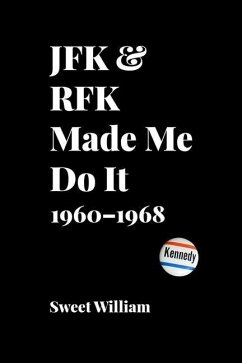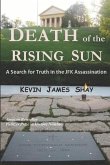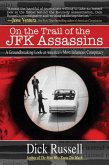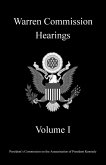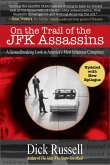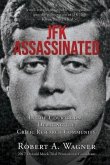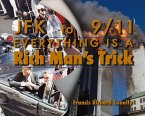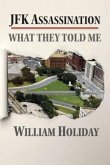"In this fast-paced, fact-packed memoir of The Sixties, a veteran social activist recalls the idealism of the Kennedy Brothers' push for peace and how it shaped him and others to become peacemakers. With eloquent words the brothers laid out their peace agenda - from JFK's Inaugural call in 1960 to join the New Frontier to RFK's "End the War" Presidential Campaign of 1968. June of 1963, JFK's "Strategy of Peace" speech given in response to the nuclear-war standoff with Russia motivated a recently graduated UCLA couple to join the Peace Corps, and were sent to Peru. This richly informed memoir documents how these two Peace Corps Volunteers (PCVs), and others, made a difference in U.S. international relations in ways that money could never buy. The emotional heart of this book is the emergence of RFK. Following his 1964 election to the U.S. Senate, he visited Peru and met with PCVs serving in both urban and rural locations. We learn how that trip influenced RFK's views on aiding the impoverished, and who caused the demise of JFK's billion-dollar assistance program for Latin America - The Alliance for Progress. Following their Peace Corps service, the couple from UCLA returned to Los Angeles. Seven months later, on June 23, 1967, they participated in LA's first anti-war march. The peaceful protest ended in a vicious police riot against the protestors that radicalized them. Many coalesced around Robert Kennedy's 1968 campaign for the Presidency, including our eyewitness activist, author Sweet William. We are introduced to the elements of social activism, and charismatic protest leaders. From this insightful history, we learn when Mexican Americans became Chicanos. We also learn that in Chimbote, Peru exactly what JFK had hoped Peace Corps Volunteers would accomplish happened - peasants were emboldened to become presidents. With eyewitness reports, excerpts of speeches, photos and more, JFK & RFK Made Me Do It: 1960 - 1968 has everything that is needed to become immersed in Sixties idealism. But alas, the Kennedy brothers' nighttime burials at Arlington Cemetery, the only veterans ever to be buried at night, put an end to their "strategy of peace.""--
Hinweis: Dieser Artikel kann nur an eine deutsche Lieferadresse ausgeliefert werden.
Hinweis: Dieser Artikel kann nur an eine deutsche Lieferadresse ausgeliefert werden.

